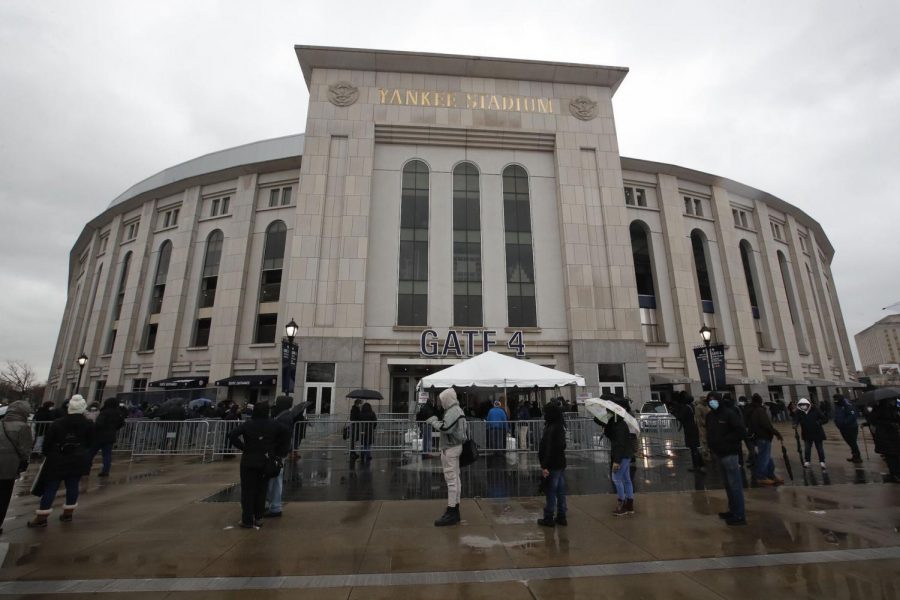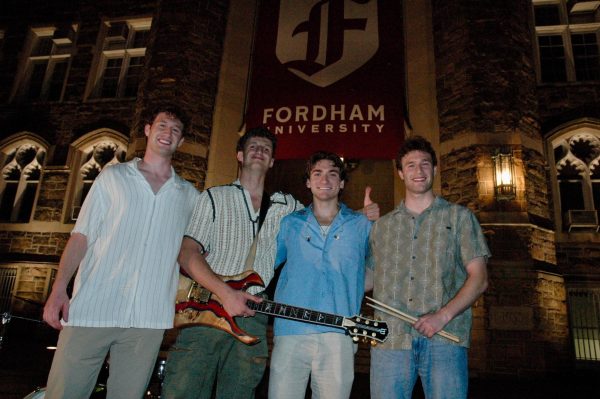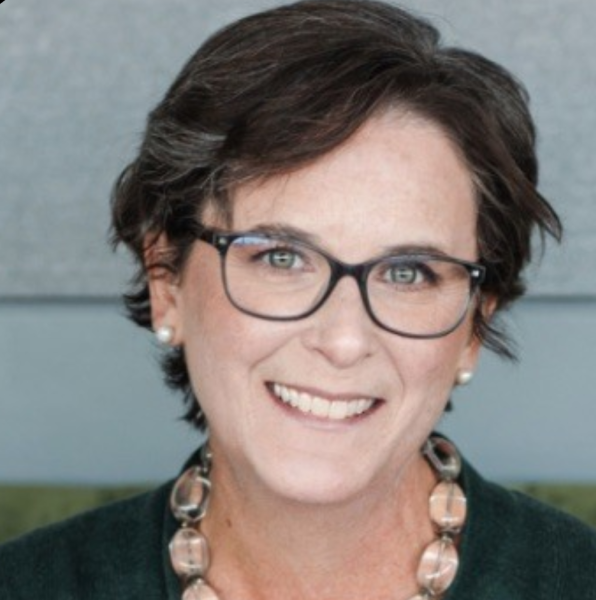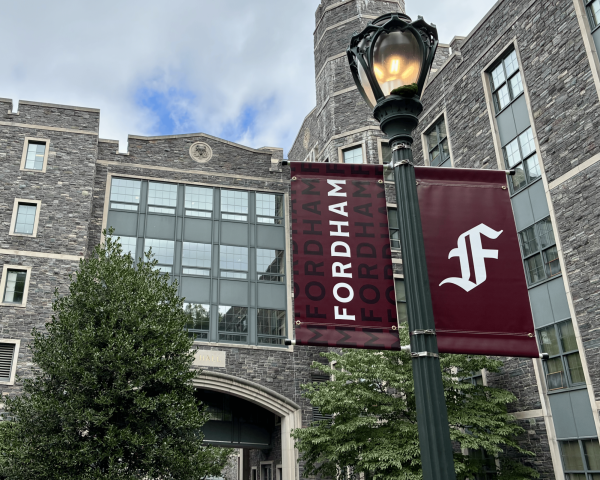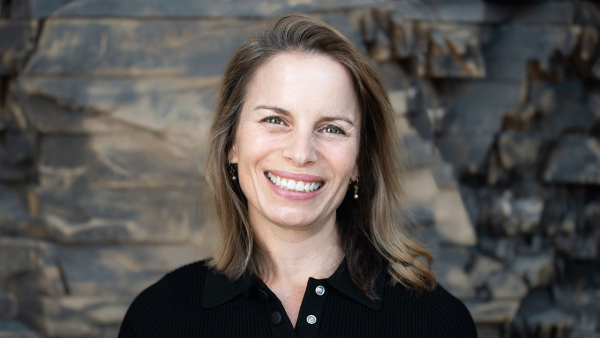Fordham Community Begins to Receive COVID-19 Vaccine
Camila Gómez, FCRH ’22, drove to Yankee Stadium early on the morning of Sunday, Feb. 14, to stand in line to receive a vaccine for COVID-19.
She carried with her a folder stuffed with paperwork to prove that she is a Bronx resident and falls under current state eligibility guidelines. She received her first dose of the Pfizer-BioNTech vaccine later that day.
Gómez described the entire experience as very emotional, the culmination of almost a year of living through a deadly pandemic. “I was trying to not cry the entire time, and then I got to my car and promptly sobbed my eyes out for like 20 minutes,” said Gómez. “The only way that I can describe it…is a mix of mourning and loss but also relief — mourning the last year of our lives but relief that maybe the end is near.”
According to New York State, over seven million New Yorkers are currently eligible to receive the vaccine, including health care workers, first responders, teachers and public transit workers. New Yorkers with certain underlying health conditions also became eligible to receive vaccines on Feb. 15. A full list of all eligible groups is available on the New York State website.
Fordham University first announced in an email on Jan. 11 that members of the Fordham community had begun to receive doses of the Moderna vaccine. The first to be vaccinated were University Health Services staff and members of the Fordham University Emergency Medical Service (FUEMS), according to Rev. Joseph M. McShane S.J., president of the university.
Jan. 11 was also the first day that COVID-19 vaccines became available to in-person college instructors in New York state, according to the governor’s office. Faculty members who opted to teach online for the spring semester are not currently eligible, explained McShane.
However, these new state guidelines still allowed some Fordham professors to receive the vaccine. Justin Pool, a professor in Fordham’s biology department, said he received both doses of the Pfizer-BioNTech vaccine at St. Barnabas Hospital with the help of the university.
The experience gave him a glimpse of the end of the coronavirus pandemic, Pool said. “We’re seeing the light at the end of the tunnel.”
These expanding eligibility guidelines have also allowed some Fordham students to receive the vaccine. Gomez said she used her position as a driver for Fordham’s Ram Van service (in addition to her status as a resident of New York City) to receive her vaccine and explained that the job falls under the “Public Transit” category in New York’s phased vaccine distribution plan. The administrators at the Ram Van office did not send any information to its student drivers about possible vaccination eligibility, but Gómez researched the guidelines on her own and decided to try to receive her first dose on Valentine’s Day.
She said going to her vaccination site felt very surreal. “If you used to regularly go to Yankee Stadium, to see the way it’s transformed now…it’s unbelievable,” said Gómez. She also described feeling unnerved by the military presence at the vaccination site.
Gómez said that she experienced several side effects after receiving her first dose of the Pfizer-BioNTech vaccine, most noticeably soreness and pain in the arm where she received the dose. “As I was driving home, I realized that I couldn’t drive with both arms because of how much it hurt,” she said. “It felt like I had gotten punched in the arm.” She also experienced temporary fatigue and nausea the next day but had completely recovered by the following day.
A report released by the Centers for Disease Control in early February indicated that the percentage of Americans who are willing to receive the vaccine has increased since September, with roughly half of adults surveyed saying they would be vaccinated. However, many still remain unsure, with possible side effects as the most common concern, according to an NBC article covering the CDC report.
Pool said he also experienced mild side effects after vaccination but emphasized that these symptoms were worth the protection he will receive from the vaccine. He recommended others in the Fordham community be vaccinated as soon as they are able, citing data that shows that all vaccines currently available in the United States significantly reduce severe illness and complications related to COVID-19.
“There will come a time when we reach that safe level known as ‘herd immunity’ when the vast majority of people have had their shot,” said Pool. “But if you’re not vaccinated, you’re still at risk.”
Gómez is scheduled to return to Yankee Stadium to receive her second dose of the Pfizer-BioNTech vaccine on March 7. She said that the experience of receiving her first dose gave her hope for a future when enough people have been vaccinated that life can largely return to normal. She spent her freshman and sophomore year as a commuter student but chose to move on-campus as a junior. Gómez said she is excited to feel like a “real college student” someday. As a life-long New Yorker, Gómez is also eager to see the city thrive again and for Broadway to reopen its doors.
The university announced in January that Fordham will eventually receive vaccines to distribute to the wider university community, but there is still no official estimate regarding when these doses will arrive.
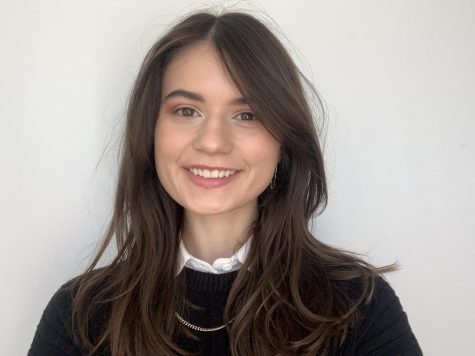
Abbey Delk is a junior from Wheeling, West Virginia, double majoring in English and journalism and minoring in film & television. Her career at the...





































































































































































































